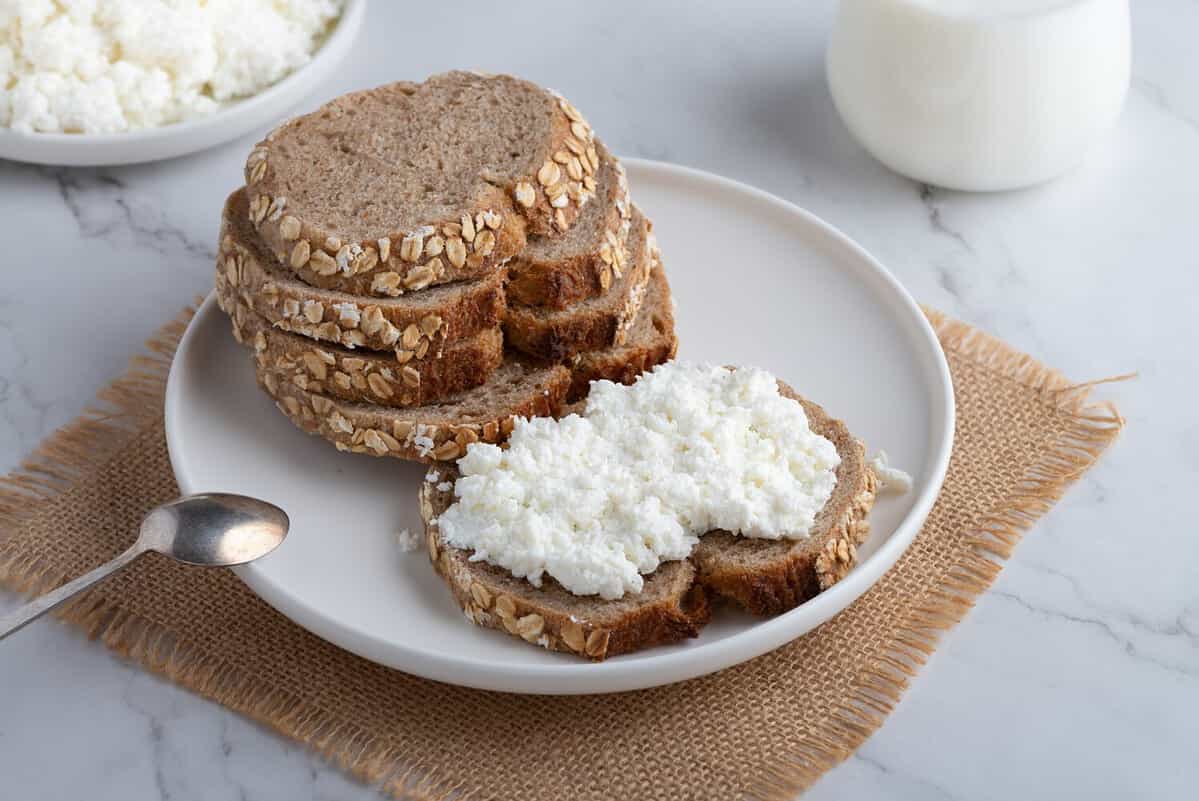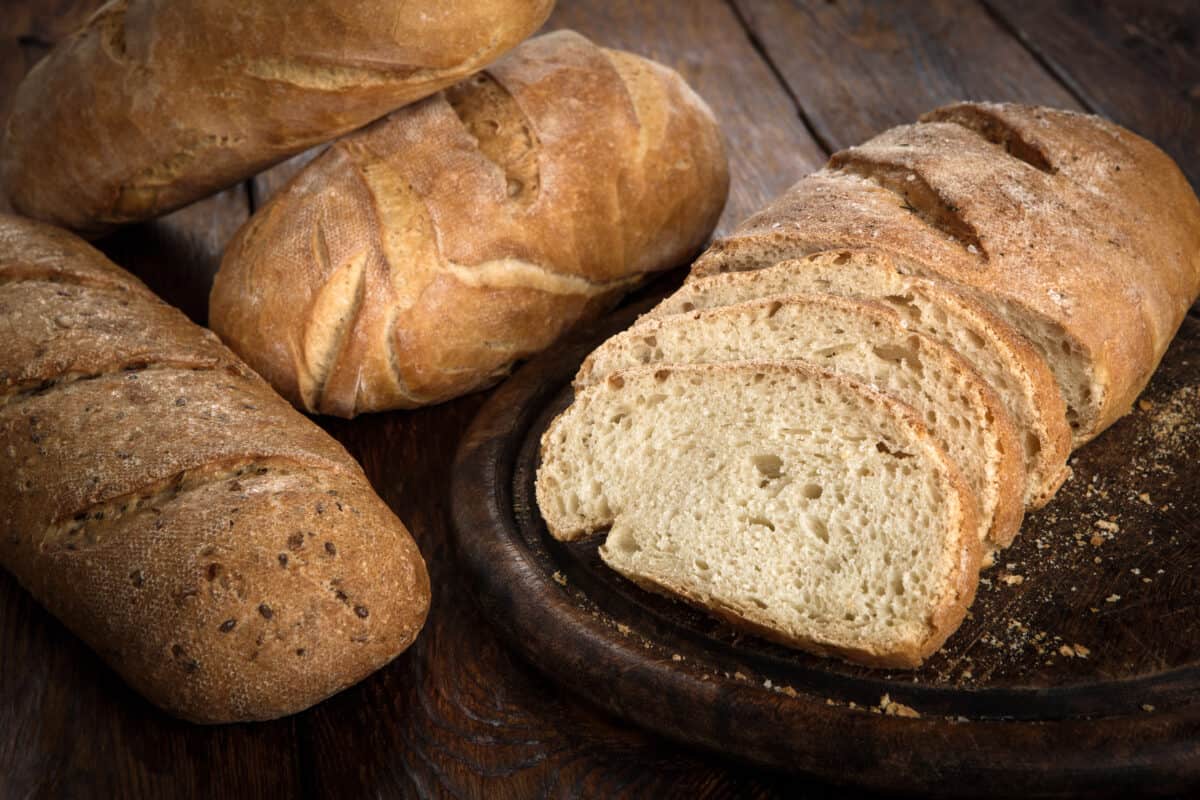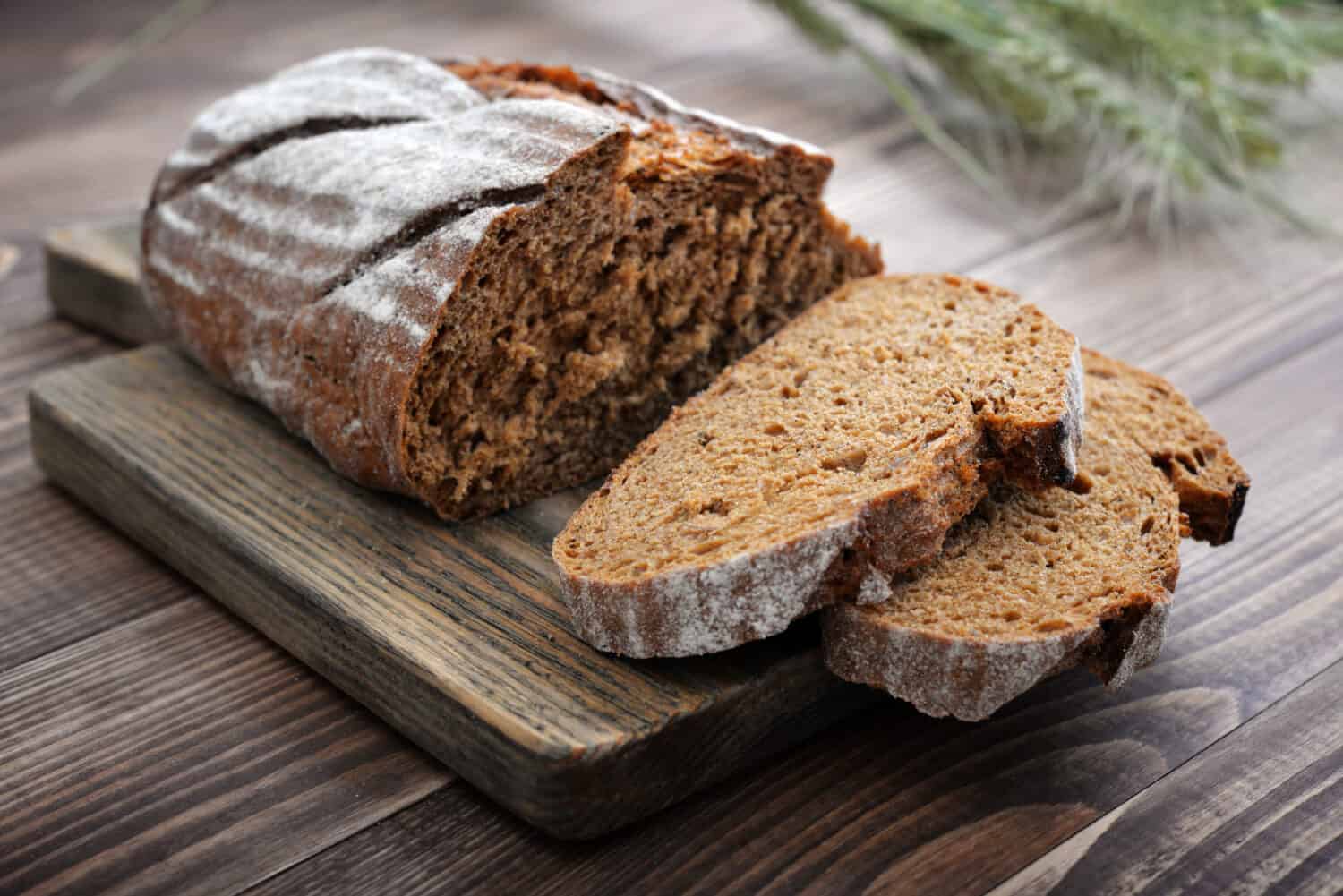Rye bread is a type of bread that offers an earthier and more dynamic taste than white or wheat bread. It is darker in color and has a strong flavor, which many people don't like. But rye bread is actually very healthy for you. Let's take a deeper look into what rye bread is, its nutritional value, health benefits, as well as some health risks to be aware of.
What Is Rye Bread?
Rye bread is made out of rye flour and rye grains, otherwise known as secale cereale. It can come in many different types; light rye bread, dark rye bread, marbled rye bread, and pumpernickel bread. Light rye bread is made from white rye flour. Dark rye bread is made from whole rye grains. Sometimes, dark rye bread can also be made with white rye flour but colored with instant coffee, cocoa powder, or molasses. Marbled rye bread is made from rolling light and dark rye bread dough together. Pumpernickel is made from coarse-ground whole rye grains. Often, rye bread you'll find in the store is made in combination with wheat flour. Even so, rye bread will offer a darker and dense bread with a strong earthy taste.

Rye bread dates back to the 12th century when Germany discovered it.
©NataliaPopova/Shutterstock.com
Nutritional Value
Rye bread contains a lot of different vitamins and nutrients. What stands out most in rye bread is its high fiber content. Of course, different rye breads will have different components and will vary in nutrition. But on average, a slice of rye bread has around 83 calories, 2.7 grams of protein, 15.5 grams of carbs, 1.1 grams of fat, and 1.9 grams of fiber.
Rye bread also contains nutrients like selenium, thiamine, manganese, riboflavin, niacin, vitamin b6, copper, iron, zinc, phosphorus, calcium, folate, and other micronutrients. Compared to white and wheat bread, rye is going to be high in fiber and provide more micronutrients.
Health Benefits
Eating rye bread can improve your health in a handful of different ways. It has been studied that rye bread can contribute to heart health. A study showed that people who consumed a tailored amount of rye bread saw a reduction in cholesterol levels. It reduces cholesterol because of its high soluble fiber content. This fiber forms a substance in your digestive tract that aids in removing bile that is high in cholesterol.
It has also been studied to reduce blood sugar and can do this in a handful of ways. Because of its high soluble fiber content, this can slow down digestion so that our bodies don't absorb sugar at a fast rate. Another way it helps blood sugar is through phenolic compounds. Rye bread contains caffeic and ferulic acid, which are phenolic compounds. These acids help to slow the release of insulin and sugar into the bloodstream.
Rye bread can also help you feel full for longer and improve digestive health. A study of people who consumed rye bread showed to have an increased level of satiety, which is a hormone that can help you feel full. Also, if you don't know by now, fiber is one of the number one things you can consume to aid in digestive health. So because rye bread is high in fiber, it will help regulate your bowels and bowel movements. A study showed that a group of people who were constipated consumed rye bread and said it worked better than using a laxative.

Rye bread is a great ingredient to incorporate into your everyday diet.
©Prostock-studio/Shutterstock.com
Health Risks
Although rye bread has some great benefits, there are also some potential downsides. Fiber, although it can be good for you, can also cause some discomfort due to bloating. Depending on who makes the rye bread, some rye can contain a larger amount of added sugar. If not careful, this can unknowingly add calories to your diet. Rye bread also contains antinutrients like phytic acid. Phytic acid can reduce the absorption of important minerals like zinc and iron.
Conclusion
Rye bread is a healthy bread option that offers some great health benefits. It is a darker bread that offers an earthy flavor. It often contains more micronutrients than white or wheat bread. Rye bread can offer health benefits like lowering cholesterol and blood sugar and improving gut health. Even with some great health benefits, it can also have some downfalls. These downfalls include bloating from fiber intake, increased sugar intake, and reduced absorption of nutrients. But, overall, rye bread is a great healthy food option to start regularly incorporating into your diet.
How To Make Rye Bread
If you're interested in making rye bread, here is our favorite recipe!
The image featured at the top of this post is ©mama_mia/Shutterstock.com
